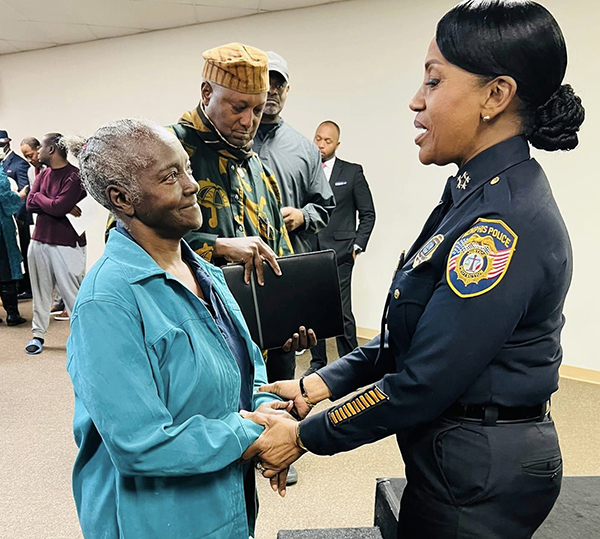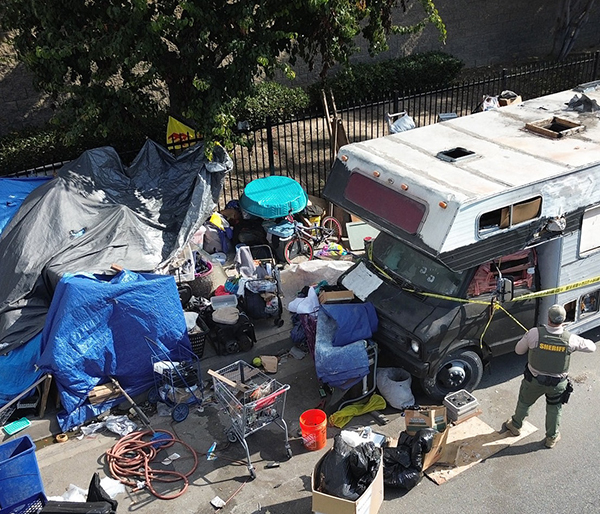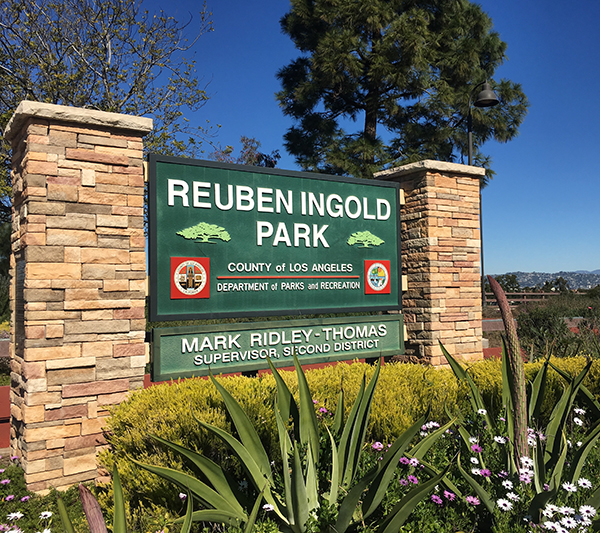By Earl Ofari Hutchinson
Contributing Columnist
Let’s be clear: Five former Black Memphis police officers got everything they deserved for beating Tyre Nichols to a pulp. They were fired and charged with second-degree murder, two counts of official misconduct, two counts of aggravated kidnapping, one count of official oppression and one count of aggravated assault.
It didn’t take a gruesome, horrid, hideous video of Nichols’ beating, from which he later died, to convince anyone with a speck of human decency that the cops stepped over the line between lawful policing and pure naked, unabashed thuggery. They obliterated the line.
Memphis police and city officials pressed for prosecution. They should be commended. They set a potential template for how quickly other city and police officials should act on wanton police violence against civilians.
However, here’s the tormenting question that dangles heavily in the air in the wake of the tape and the murder: What if five white cops had beaten Nichols to a pulp?
Nichols family attorney Benjamin Crump lightly raised that question. He was far from alone.
I’ve asked it and many other Blacks asked the same question. Just one week before Nichols’ murder, a videotape was released that showed a swarm of white and non-Black Los Angeles police officers man-handling and repeatedly Tasing Keenan Anderson on the ground. Anderson, like Nichols, was a young African-American male. He later died of cardiac arrest that may have resulted from the repeated Tasing.
Now contrast this: the Los Angeles Police Protective League did not issue an angry statement blasting the cops in the Anderson death. It apparently saw nothing inappropriate about their use of force against Anderson.
However, in a public statement, the police group lambasted the five former Memphis officers for allegedly violating all the canons of lawful police work. The issue of whether there is a racial double standard in how white and Black cops are treated when accused of misconduct surfaced in July 2017.
Black former Minneapolis police officer Mohamed Noor was charged with murder and manslaughter in the death of a 40-year-old dual Australian American citizen. The victim was white and Noor was swiftly arrested, charged and convicted. He served about three years in prison and was then released after a court upheld his appeal.
As in the case of the five former Memphis cops charged with the murder of Nichols, no Black officials justified Noor’s action, but they did raise the question of whether he was treated harsher than a white cop would have been, particularly if the victim were non-white. It is hard to believe that a jury would buy the tried and true cop defense from a Black officer who beat, maimed or killed a suspect, namely the argument that he or she used deadly force out of fear for their life.
Some might suggest, “But wait, didn’t police and city officials demand prosecution of former Minneapolis officer Derek Chauvin for choking George Floyd to death? And wasn’t former Chicago police officer Jason Van Dyke prosecuted for murdering 17-year-old Laquan McDonald in October 2014? Both are white.” That’s true. But it took the threat of national anarchy and the grotesque, long-running video of Floyd’s murder to assure Chauvin’s firing and prosecution.
As for Van Dyke, it took five years to finally get a conviction against him. It did not take a video and the threat of national mayhem for the Black Memphis cops to lose their badges, and potentially their freedom. Again, this was the right thing to do – but they were Black.
Police have killed thousands of unarmed civilians since 2005, but, according to a survey by the Washington Post and researchers at Bowling Green State University, only a handful of officers have been charged in the shootings and virtually all were acquitted if they ever went to trial. Prosecutions, as we well know, of any police officers for excessive force are the rarest of rare commodities.
The number of those charged hovers in the low, single digits. The feds are no better, according to the Transactional Records Access Clearinghouse at Syracuse University. Between 1990 and 2019 federal prosecutors leveled civil rights violations charges against police officers 41 times per year on average. That number hit a low in 2005 with 19, and peaked in 2008 with 67.
Prosecutors know it’s a tough hill to climb with jurors in police abuse cases and have said as much. That is one of two major reasons that they almost never bring charges against cops who kill even in the most blatant, outrageous and over-the-top displays. The other reason is the public perception that communities and the police in America are under siege from lawless criminals.
The cops who beat Nichols to death belonged to a special unit that was hailed for supposedly reducing rampant gun violence and major crime in Memphis. But they were still Black cops.
That’s why so many ask the question, “What if they weren’t? Would they have found themselves in a court docket — at least as quickly as they did?”
It’s a fair question.
Earl Ofari Hutchinson is an author and political analyst. He is the host of the weekly Earl Ofari Hutchinson Show on KPFK 90.7 FM Los Angeles and the Pacifica Network Saturdays at 9 a.m.











